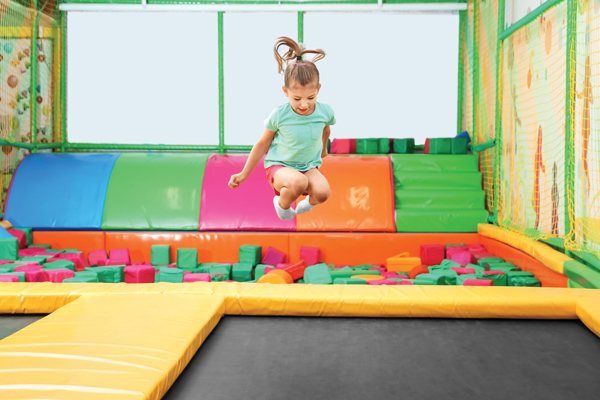
We’re all aware that regular physical activity is important and has many health benefits. But even some very active children have a difficult time keeping exercise going during the winter months. The weather is probably horrible, it gets dark earlier, and a ‘duvet day’ can be very appealing!
However, whatever the weather, it’s important to keep little ones active and help them stay that way by developing an exercise habit from before they even start school. The NHS recommends that to maintain a basic level of health, children aged five to 18 need to do:
• At least 60 minutes of physical activity every day – this should range from moderate activity, such as cycling and playground activities, to vigorous activity, such as running and tennis.
• On three days a week, these activities should involve exercises for strong muscles, such as push-ups, and exercises for strong bones, such as jumping and running.
This sounds a lot but can be made more manageable by combining structured activity classes with fun exercises at home, and building fitness into your everyday routine. It can then help promote healthy weight management and reduce the risk of many chronic diseases.
Get outside
Just because it’s cold outside does not mean you have to stay inside! The key is to wrap everyone up in layers and to keep moving. Moving around outside and getting your heart rate up will help keep you warm as well. Walk to school or part of the way, once a week, go to the park, or play outside with friends. Children’s farms still have plenty going on in the winter and there is lots of space to run around in. Most of them now have vast outdoor play areas and you can warm up with a hot chocolate in the café afterwards.
Choose another indoor location
Especially in the winter months, getting out of the house will help prevent children getting cabin fever, and can mean they will sleep better at night. Try choosing a location that also incorporates physical activity with lots of fun such as a leisure pool, soft play centre, ice rink or indoor climbing.
Enrol children into a new class
If you want to get your children involved in something fun and consistent, enrol them in a regular class. It’s a great way to try something new, be active, and meet new people – for them and you. Trying new activities is a great way to figure out what children might like. There are lots of classes for preschool children upwards. Classes for preschoolers are all about having
fun while being active. Classes are age-appropriate, and babies can start at many of them from six months, and so by the time they reach school age exercise has become a healthy habit for them, and their social skills will also be enhanced.
Build exercise into your routine
Everyday activities can count as exercise too, as long as your children are getting their heart rates up. Things like walking the dog, biking to the shops, or going to the park on the way home from school all help. Incorporating these activities into your children’s daily routines will help them develop a healthy lifestyle that will stay with them for the rest of their lives. An hour a day is the target, but these activities can be accumulated throughout the day not necessarily all at once.
Limit screen time
We are all aware that even very young children are spending increasing amounts of time in front of a screen, which includes television, videogames, computers and phones. Whilst children are at primary school you are almost completely in charge of what they eat and what they watch, so don’t let them get used to spending hours in front of a screen every day. If screen time isn’t allowed to become a habit whilst they are young, you will have far less problems getting them off screens as they become older.
In order for children to find exercise fun, they need lots of variety. And when they find exercise enjoyable, they are much more likely to stick with it over an extended period of time. Avoid the boredom factor by offering as many different options for activity as possible. Plus, trying new physical activities together as a family will not only benefit your children’s health, but can help fight the winter ‘blues’ too. So, get up, get moving, and stay active this winter!











